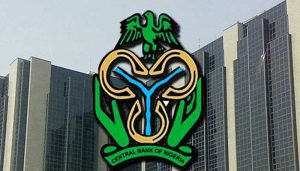
Cornerstone Insurance has emerged as one of the standout performers in the Nigerian insurance sector, with its share price gaining 79.29% year-to-date (YtD) as of September 28, 2024.
This impressive growth has placed Cornerstone as the third-best performer in the NGX insurance sector in terms of share price performance and second in market capitalization.
Building upon its strong performance in 2023, where it posted a 133% YtD increase, the stock appears a top choice for investors seeking capital appreciation, effectively outpacing inflation and delivering positive unrealized real returns.
However, the question remains: Is this surge in Cornerstone’s share price driven by solid underlying fundamentals, or are other market dynamics at play?
To understand whether this rally is sustainable, we need to delve into the company’s recent financial performance, growth drivers.
In the first half of 2024, Cornerstone reported insurance revenue of N16.947 billion, marking a 76% year-on-year (YoY) growth and representing over 65% of the full-year revenue for 2023.
This surge in insurance revenue is certainly impressive, but a deeper analysis reveals some key points of concern.
In the first half of 2024, 84% of Cornerstone’s insurance revenue comes from its non-life insurance segment, while the group life segment contributed only 12%.
This imbalance indicates the company’s heavy dependence on non-life insurance products for growth.
Historically, in 2023, non-life insurance revenue accounted for 57% of total revenue, while life insurance contributed 20%. The increasing reliance on non-life insurance could pose inherent risks:
Economic Sensitivity: Non-life insurance, including property, casualty, and health, tends to be more susceptible to cyclical economic factors, natural disasters, and unpredictable claims events. This suggests heightened exposure to volatility, particularly in regions with less robust risk management frameworks.
Lack of Diversification: The relatively low contribution from life insurance highlights a lack of diversification in the revenue base. Life insurance products typically offer more stable, recurring revenue streams. The slow growth in this segment suggests that Cornerstone may not be capitalizing on the long-term profitability and stability that life insurance can provide.
Despite the strong growth in insurance revenue, Cornerstone’s insurance service results have been notably weak.
In the first half of 2024, the group reported insurance service results of only N2.135 billion, contributing a mere 7% to the group’s profit before tax (PBT).
In 2023, the situation was even worse, with the company reporting an insurance service loss of N338 million.
High expenses related to insurance and reinsurance contracts, accounting for over 87% of insurance revenue, have been a major factor compressing insurance service profitability.
Investment income also presents a mixed picture. In the first half of 2024, investment income contributed only 7.32% to the group’s PBT, a decline from 13% in 2023.
This indicates a diminishing impact of investment returns on the group’s profitability, suggesting that Cornerstone’s profits are increasingly reliant on non-operational factors, primarily foreign exchange gains.
The key driver of profitability for Cornerstone has been foreign exchange gains.
In the first half of 2024, foreign exchange gains surged by 104% YoY to N27.601 billion, contributing over 93% of the net financial results.
This reliance on foreign exchange gains is concerning, as it indicates that the impressive pre-tax profit growth of N29 billion (107% YoY growth) is largely due to external factors rather than improvements in the core insurance business.
In 2023, foreign exchange gains contributed 74% to the group’s net financial results, up from only 28% in 2022. This increasing buffer from foreign exchange movements introduces significant volatility to Cornerstone’s profitability; such gains are subject to currency fluctuations and do not reflect core operational strength.
Cornerstone’s valuation metrics paint an interesting picture. With a price-to-earnings (P/E) ratio of 1.50, the stock is significantly undervalued compared to both the broader market and industry peers.
The relative P/E versus the NGX index industry is only 0.13, suggesting that Cornerstone is trading at a substantial discount.
The price-to-sales (P/S) ratio (TTM) stands at 0.61, indicating that the market values the company’s revenue generation capacity at a relatively low multiple.
Similarly, the price-to-book (P/B) ratio of 0.75 suggests that the stock is trading below its book value, potentially signaling market reservations about asset quality or return generation.
Cornerstone also offers a dividend indicated gross yield of 6.37%, attractive in the current economic environment.
Overall, while Cornerstone Insurance has delivered impressive share price gains and top-line revenue growth, along with a strong dividend yield and low P/E and P/B ratios, significant concerns lie beneath the surface.
The company’s bottom line, primarily driven by foreign exchange gains, combined with weak insurance service results, indicates that current profitability may not stem from sustainable operational improvements.







